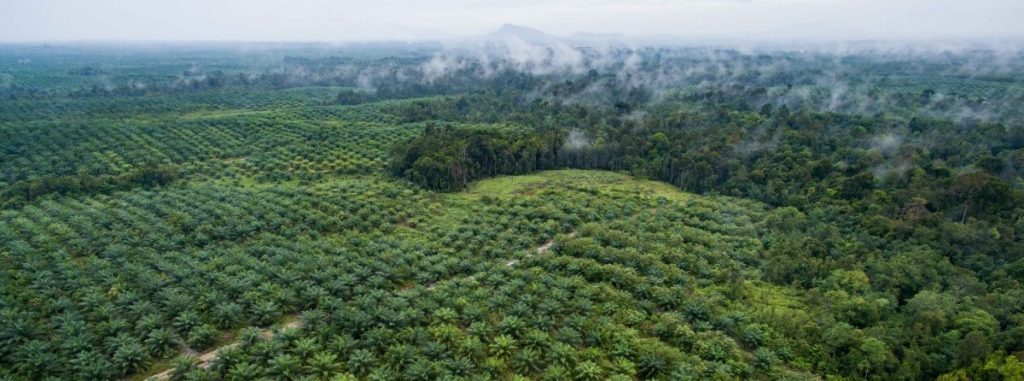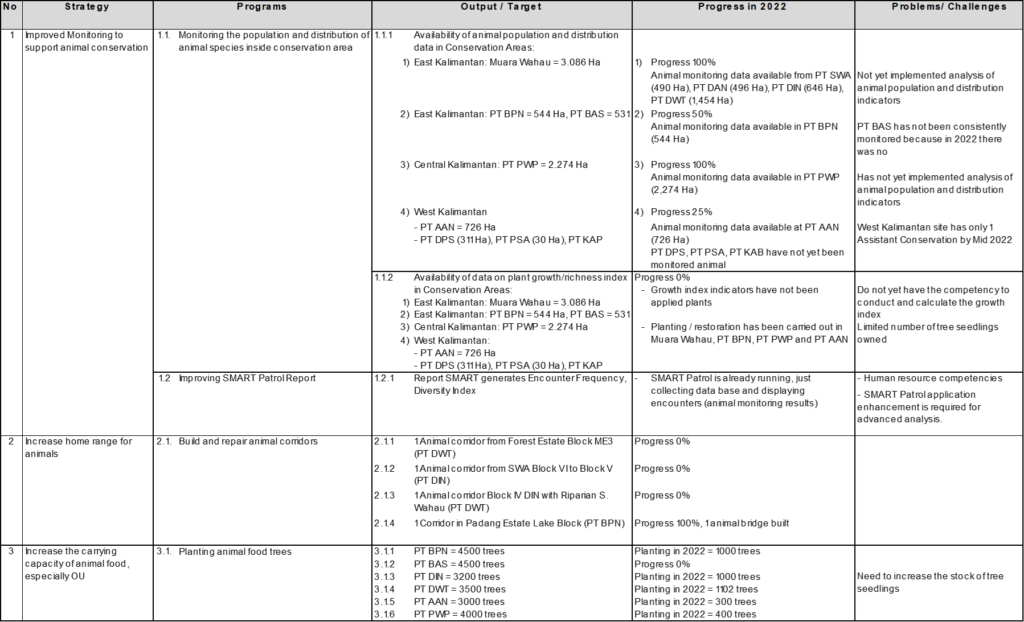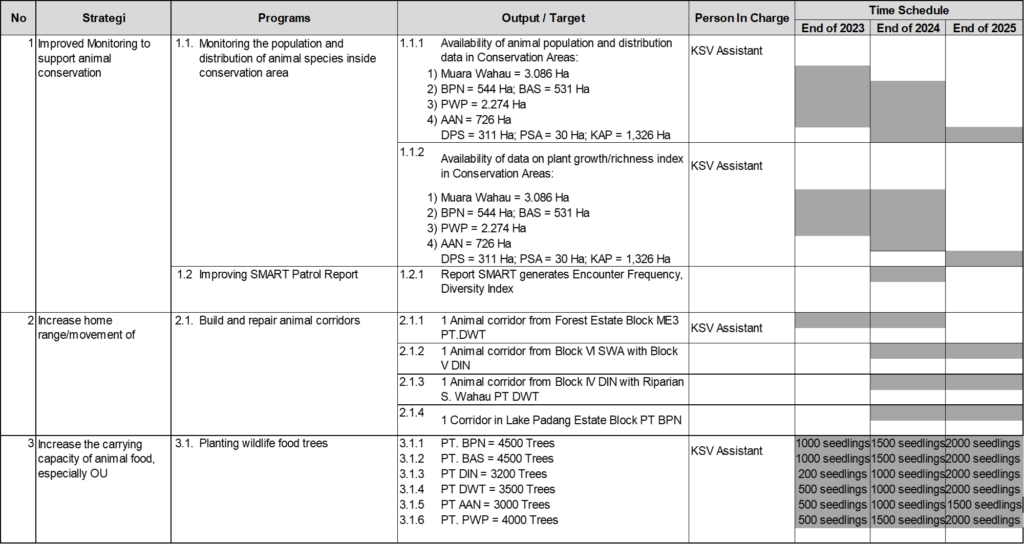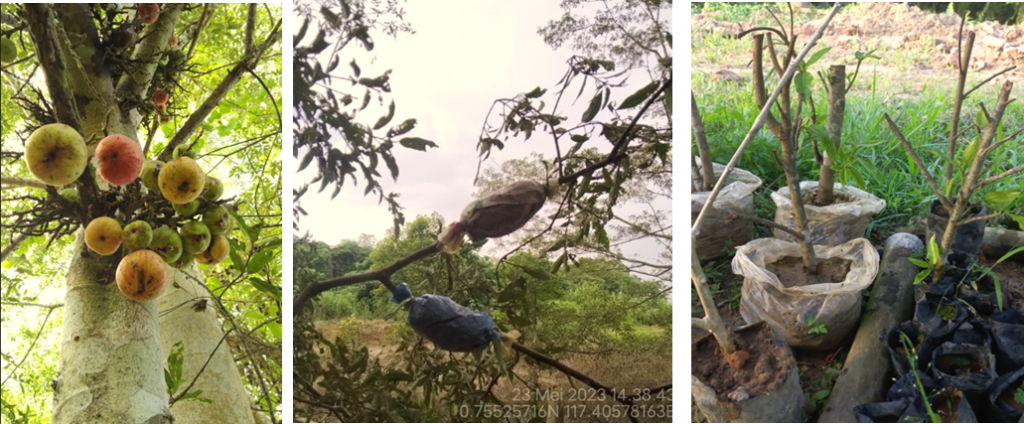Habitat, HCV & River Buffer Zone Protection

Habitat, HCV & River Buffer Zone Protection
DSN Group is committed to protecting High Carbon Stock (HCS) and High Conservation Value (HCV) forests, including riparian zones as well as the following :
- DSN Group does not carry out any development of land with high carbon or conservation value and peatlands. The company is committed to zero conversion of all natural ecosystems, especially areas that have been designated as international or nationally protected areas.
- DSN Group respect the rights of indigenous peoples and local communities in line with its NDPE Policy.
- DSN Group also actively monitors the conservation areas as an effort to proactively protect these valuable ecosystems.
- DSN Group as a member of RSPO, therefore is committed to RSPO’s No Deforestation commitment as prescribed in its P&C 2018 Standard.
The above commitment also applies to all our supply chain.
We are committed to the monitoring of threats to conservation areas (as mentioned in our NDPE policy) in and around our operations seriously. As part of our strategy to prevent encroachments into such areas, we consistently advocate socialization and engagement with communities and our supply chain around our operations. DSN Group has also been registered to the Global Forest Watch (GFW) Pro since November 2021, to get near-time deforestation alert. Additionally, DSNG also collaborates with Satelligence to monitor real-time deforestation risk monitoring across all company concession areas and its supply base
Further, our commitment with &Green require us to emphasize the protection of the forest left outside the concessions through its NDPE implementation strategy, as defined in its Landscape Protection Plan. On-concession, DSN Group is also protecting and maintaining over 4,000 ha of forest in all concessions, including high conservation value (HCV) and riparian buffers, in East Kalimantan. Furthermore, DSN Group is restoring small areas of degraded forest. This is reflected in our &Green commitment. https://www.andgreen.fund/portfolio-pt-dharma-satya-nusantara-tbk-dsng/
Aside from our commitments in our NDPE policy, we are committed to restore non-compliant deforestation or land use conversions occurring after 31 March 2020 in our concessions. This is consistent with our commitment to the Remediation and Compensation Plan procedure in RSPO. This commitment to restore or rehabilitate non-compliant deforestation or land use change after 31 March 2020 also applies to all our supply chain.
We have had experiences where we detected encroachments by local communities in our conservation areas and we continue to engage with the local communities to prevent any further encroachments.
Since 2015, the DSN Group has only developed plantations after the completion of HCV and HCS assessments, AMDAL (Environmental Impact Analysis) and SEIAs (Social and Environmental Impact Assessments), as well as other mandatory studies required by national and local regulations. This process to conduct SEIAs (Social and Environmental Impact Assessments) and AMDAL is now a firm commitment of the company. This complements our commitment as a responsible member of the RSPO which requires our commitment to HCV Assessments and HCS Approach, which shall be carried out by ALS-HCVRN (HCV and HCS) licensed assessors. These commitments applies to all of our supply chain as aligned with our NDPE Policy.
Since the peer review of the HCV report was carried out by the HCVRN, there have been 2 plantations of DSN Group that have received satisfactory status from the HCVRN, and have also conducted HCSA studies and have been registered on the HCSA website (Status: Completed Peer Review Assessment).

Conservation Area Protection
The Company has committed to continue preserve conservation areas naturally and intervene, including through cooperation with local indigenous communities and the Nehas Liah Bing Village Government in managing HCV in the Block X Melenyie PT Dewata Sawit Nusantara conservation area.

Preserved Riparian Ecosystems of Wahau River Within PT Dewata Sawit Nusantara’s Conservation Area
REHABILITATION OF CONSERVATION AREAS
By 2022 the SHE’s Conservation Section Team had planted 3,802 trees in degraded areas with the aim of restoring ecosystem conditions.
At PT BPN, the SHE’s Conservation Section Team is currently breeding Fig trees from cuttings, amongst other species of trees. Fig trees are an important source of food for orangutans and other animals.
OUR PROGRESS WITH OUR WORK TO CONSERVE AND PROTECT OUR BIODIVERSITY

OUR PLAN FOR CONSERVATION AND BIODIVERSITY PROTECTION 2023-2025

In 2023, the SHE Conservation Team planted 6,424 trees in degraded areas with the aim of restoring ecosystem conditions. One of which is PT BPN is breeding Fig / ficus trees, which are orangutan food trees, by cutting them.

In 2023, the SHE & Conservation Department has restored a 25 ha natural corridor at PT Dewata Sawit Nusantara that connects the conservation area at PT DIN with the Wahau River riparian at PT DWT. The function of the corridor is to expand the home range of animals in search of food or mates.